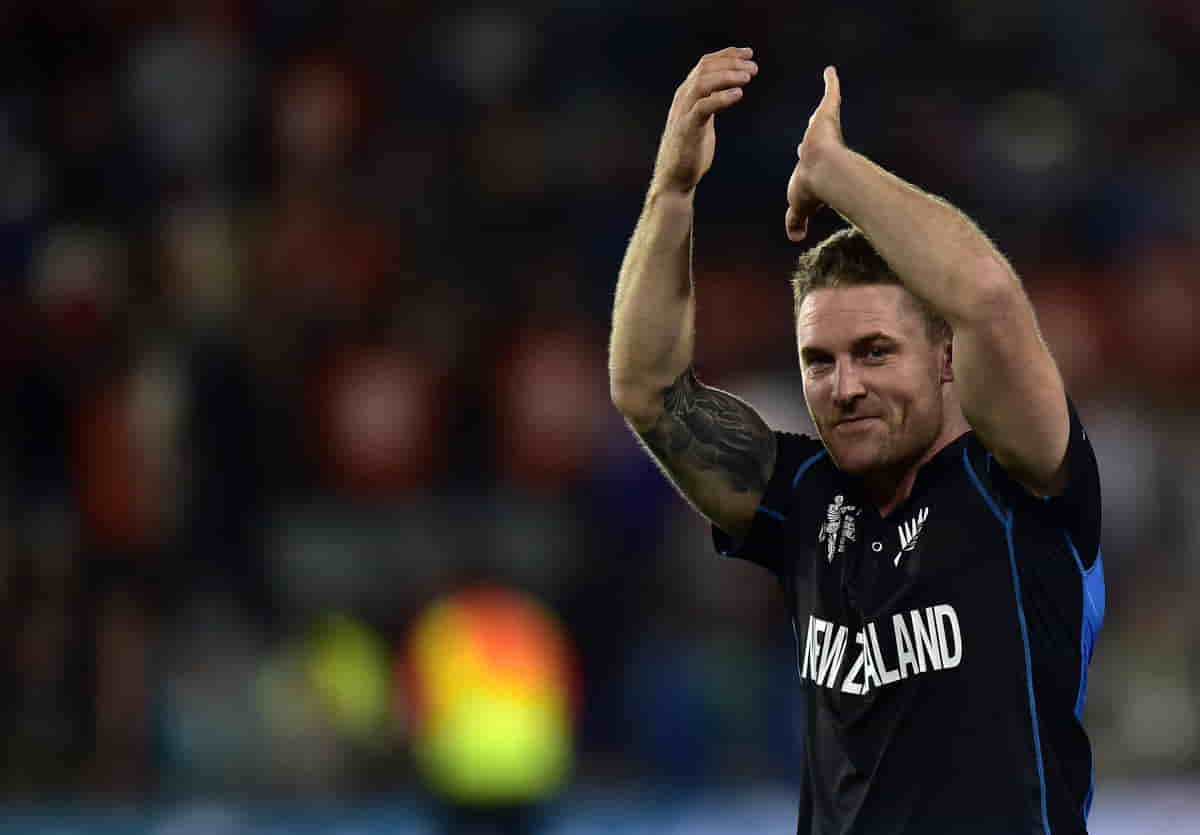 Image Credit: twitter.com/@ICC
Image Credit: twitter.com/@ICC
As a result of the fact that the World Cup is a competition that only takes place once every four years, everyone is eager to take advantage of any chance they get to do something particularly memorable. Throughout the history of the World Cup, there have been a significant number of outstanding performances in both the batting and bowling categories. As a batsman, it is always nice to score runs, but it is even more remarkable when the runs come quickly, one after the other. One of these things that gives a batsman a tremendous amount of pleasure and confidence is scoring fifty runs in the fastest possible time.
Here are the Top Five Fastest 50s in the History of Cricket’s World Cup:
| Rank | Balls | Player | Opposition | Venue | Date |
| 1 | 18 | Brendon McCullum | England | Westpac Stadium, Wellington | 20 February 2015 |
| 2 | 20 | Brendon McCullum | Canada | Beausejour Stadium, Gros Islet | 22 March 2007 |
| 3 | 20 | Angelo Mathews | Scotland | Bellerive Oval, Hobart | 11 March 2015 |
| 4 | 21 | Glenn Maxwell | Afghanistan | Perth Stadium, Perth | 4 March 2015 |
| 5 | 21 | Mark Boucher | Netherlands | Warner Park Sporting Complex, Basseterre | 16 March 2007 |
| 6 | 21 | Brendon McCullum | Australia | Eden Park, Auckland | 28 February 2015 |
Brendon McCullum (18 balls)
This former New Zealand captain, widely considered among the best batsman in the game, owns the record for the fastest fifty in World Cup history. This blow came in the 2015 World Cup group stage against England when he scored a blistering fifty off of just 18 balls and broke his record. New Zealand reached England’s goal of 124 in 12.2 overs, losing only eight wickets. With 77 not out of 25 balls, including eight fours and seven sixes, Brendon McCullum was the attack’s mastermind.
Angelo Mathews (20 balls)
Angelo Mathews scored a fifty against Scotland in Hobart in the second fastest time, with only 20 balls. After Sri Lanka scored 301 runs, Mathews added to their total by smashing leg spinner Machan for four sixes in as many balls. As a result of his 27 off of 16 balls and the four sixes he hit on his way to 50 off of 20 balls, Mathews became the player with the second-fastest fifty in World Cup history. Tillakaratne Dilshan (104) and Kumar Sangakkara (124) scored hundreds to highlight Sri Lanka’s innings. This was Sangakkara’s fourth consecutive century in this World Cup.
Brendon McCullum (20 Balls)
In the 2007 match against Canada in Gros Islet and the 2011 World Cup, Brendon McCullum batted down the order to provide New Zealand with the final blow. Lou Vincent’s century and McCullum’s lightning-fast 52 off 21 balls led New Zealand to a mammoth score of 363. McCullum hit fifty off 20 balls, including five sixes and a four. By a decisive margin of 114 runs, New Zealand triumphed over Australia.
Mark Boucher (21 Balls)
Mark Boucher, bettering his performance against the West Indies, scored 50 runs off 21 balls in the final over of South Africa’s innings against the Netherlands. Herschelle Gibbs (72 off 40) and Jacques Kallis (128), who became the first batsman in international cricket to hit six sixes in an over off Dan van Bunge, benefited from his efforts. Boucher had 21 balls to hit, hitting four home runs and nine fours.
Brendon McCullum (22 Balls)
South Africa had New Zealand chase a target of 298 (DLS) in 43 overs in the first semi-final. The aim was difficult, and the stakes were high, but McCullum came out swinging and hit the third-fastest fifty of the tournaments in only 22 balls. With the help of his bat, he scored 25 runs in Dale Steyn’s over. But despite hitting 59 runs off 26 balls, McCullum was dismissed in the seventh over. McCullum’s efforts were not wasted, thanks to the batsmanship of Grant Elliott (84*) and Corey Anderson (58). New Zealand has advanced to the championship match for the first time, winning four wickets with one ball remaining.





